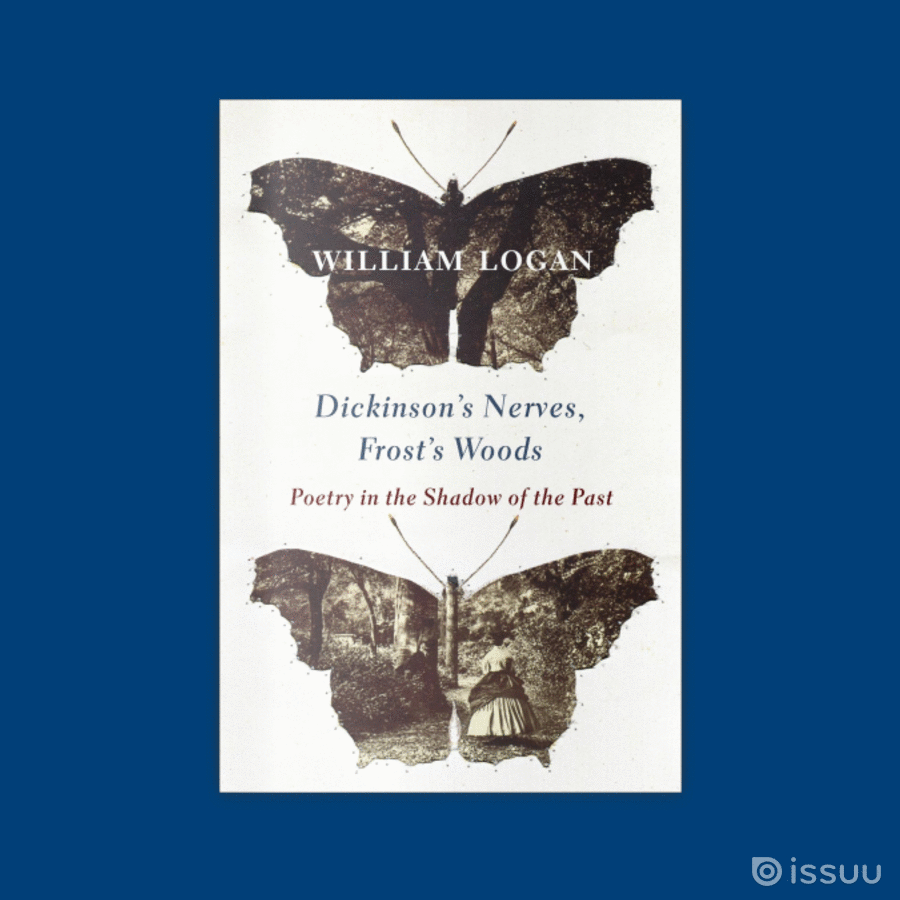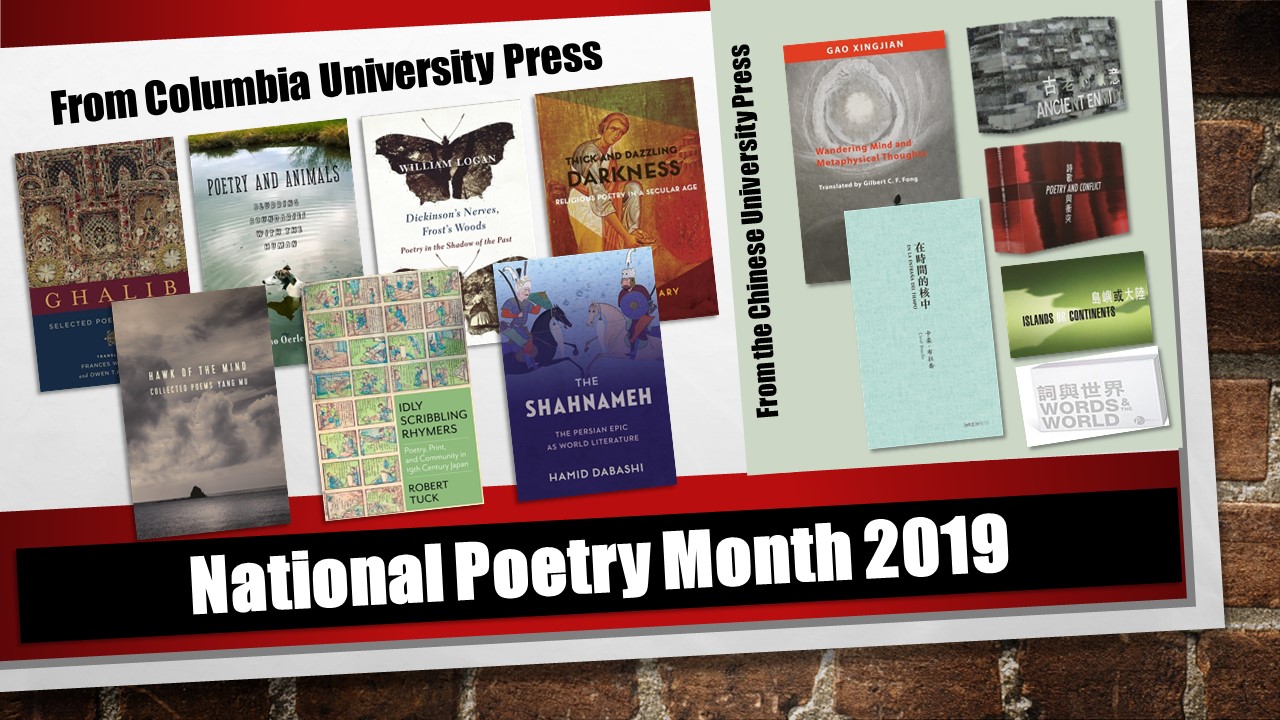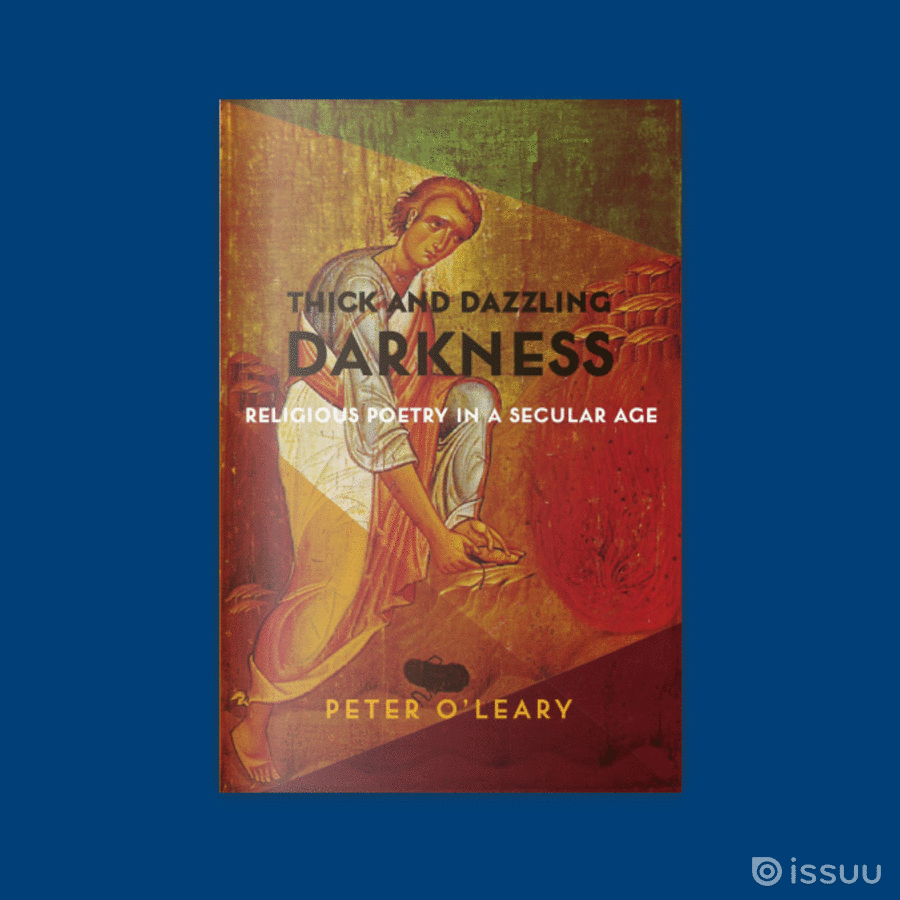Book Excerpt! Dickinson’s Nerves, Frost’s Woods: Poetry in the Shadow of the Past

“Logan’s ear can be superb, and when he’s on charitable form, he can teach any reader to hear better.”
~ Cal Revely-Calder, Times Literary Supplement
An Excerpt From Chapter 8: Dickinson’s Nerves, Frost’s Woods
Our celebration of National Poetry Month continues today with this book excerpt and media roundup from William Logan’s Dickinson’s Nerves, Frost’s Woods: Poetry in the Shadow of the Past. In this work, Logan reconciles history and poetry to provide new ways of reading poets ranging from Shakespeare and Shelley to Lowell and Heaney. In these striking essays, Logan presents the poetry of the past through the lens of the past, attempting to bring poems back to the world in which they were made.
Enter our National Poetry Month drawing for a chance to win a copy of the book!
• • • • •
In The News
Notes Toward an Introduction
by William Logan
The New Criterion: May 2018
Fashions in criticism rise like hemlines and fall like stocks, but the burden of criticism remains. The biographical interpretations a century ago, psychological readings a generation back, poststructuralist readings of the day before yesterday—all had their day. Many of the claustrophobia-inducing methods of the moment will soon be old hat, perhaps to be replaced by methods even worse. There’s no Whig history of criticism, at least to the cynic, only small successes in a landscape strewn with pitfalls and bear traps.
The critic’s job of work is to drag poems back to the world in which they were made, to restore the lost background of their creation, while knowing that history has sometimes been used to bully poems and their authors. Wordsworth had a child out of wedlock. Coleridge was an opium addict. Ben Jonson killed a man in a duel. Shakespeare may have been in favor of enclosure (or maybe not—the evidence is ambiguous). You don’t have to scratch the great modernists very deeply to find something unhappy in their makeup, whether anti-Semitism or the casual racist slurs of which all were guilty. We cannot blame the past for being the past, for having attitudes that strike us as unfortunate or even horrifying. None has much influence on the poetry—it has effect only when critics decide that all authors should be taken to the pillory, if not the gallows.
Continue Reading
Dickinson’s Nerves, Frost’s Woods: Poetry in the Shadow of the Past by William Logan
Queensland Reviewers Collective: October 2018
Logan identifies the job of the poetry critic as one of contextualising, i.e. as far as he is able, to place the poem into the environment in which it was created. A writer of poetry does not necessarily consider how readers in years to come may interpret his words, but that does not negate the basic requirement of critics who must see that “a poem is a historical artefact, no less an artefact than a Renaissance slipper or a marble fragment of the Acropolis. History interprets the artefact, and on occasion the artefact interprets history” (2). The promotional material claims that Logan reconciles history and poetry to provide new ways of reading poets ranging from Shakespeare and Shelley to Lowell and Heaney. This is a huge statement.
Logan suggests that most of the poems we know are so familiar to us that we have forgotten how to read them. “Critics should try to see poems from the inside, to get down into the muck of the poem’s invention – and, of course, into the muck of its language…I want to argue that facts lying outside the poem are often crucial to its inner working” (2 – 3), as is normal practice with art which is embedded in the world from which it is made. Long settled in anthologies, memorised by some or read to death by others, a poem can live in its own shadow, can become so encrusted with criticism it can no longer be seen plain.






